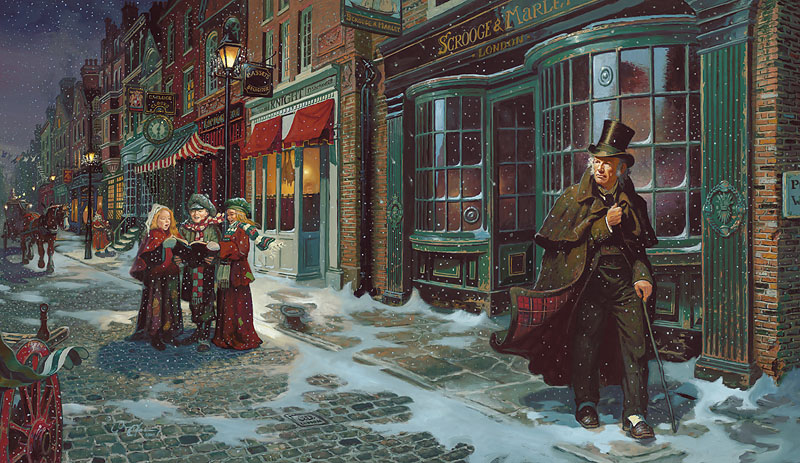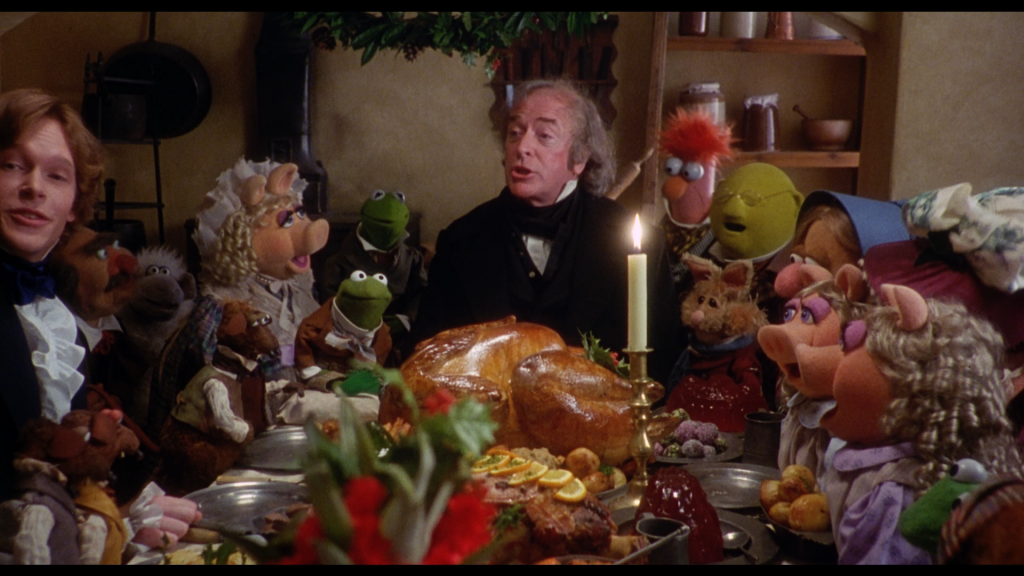
It’s Christmas time, and that means that the Schopfer home is filled with the signs of the season. A tree that has taken over the living room, holiday music echoes from several rooms at once, and every evening there are showings of all our favorite Christmas movies. It was while watching one of these old favorites that I started to seriously consider what is perhaps the most popular Christmas tale of all time, Charles Dickens’ A Christmas Carol.
A quick Google search will reveal that this short book has been adapted more times than any other work of fiction, and I don’t think anyone who knows the story would be surprised by that. Universal themes of regret, love, and redemption are personified by this powerful little plot, and dozens of creatives have wanted to present their personal vision of the story over the years. This abundance of adaptations doesn’t even take into account all of the stories that are clearly influenced by Scrooge’s emotional journey. From “It’s a Wonderful Life” to “The Polar Express”, tales of divine intervention on behalf of a lost soul are part of the cultural fabric of this special time of year.
So what can writers learn from this?
I’ll often hear students in my writing classes express concern over writing a similar plot to something they’ve already seen. “I had to give up on my story,” they say sadly. “Someone else had already written it.” But look at A Christmas Carol again. How many different Scrooges have you seen? How many Jacob Marleys, or Bob Cratchits? How many times have you heard the lines “God bless us, everyone!” and “Humbug!” Think of all the adaptations that have wonderfully distinct tones and voices despite having nearly identical plots. Like a song that’s been sung by a variety of artists, a great story can become iconic as each artist puts their distinctive mark on the piece.

My personal favorite is the “Muppet Christmas Carol”. I’ve always been a huge fan of Jim Henson (I even dedicated one of my short stories to him!) and this movie was the first major Muppet project after his passing. Possible as a result of this, the usual silliness of the characters was subdued in favor of a warmer, gentler adaptation of the familiar story. The holiday tale seems tinged with the team’s grief at the loss of Jim as well as longtime Muppeteer Richard Hunt. This loss is felt most keenly in a scene where Kermit (played by Steven Whitmire and portraying the character of Bob Cratchit) speaks to his family about the death of Tiny Tim. In my view, Kermit’s words of comfort and kindness are as much meant for the rest of the Muppet family as they are for the Cratchit family, and I always cry at the sweet sincerity of that moment.
So for any writers out there that are worried that their stories have a similar plot to something else that’s already been done, don’t fret. The story may have been told before, but only you can tell it with your voice. Trust in the power of your storytelling ability, and perhaps your story will become another treasured classic for your fans.
Merry Christmas!